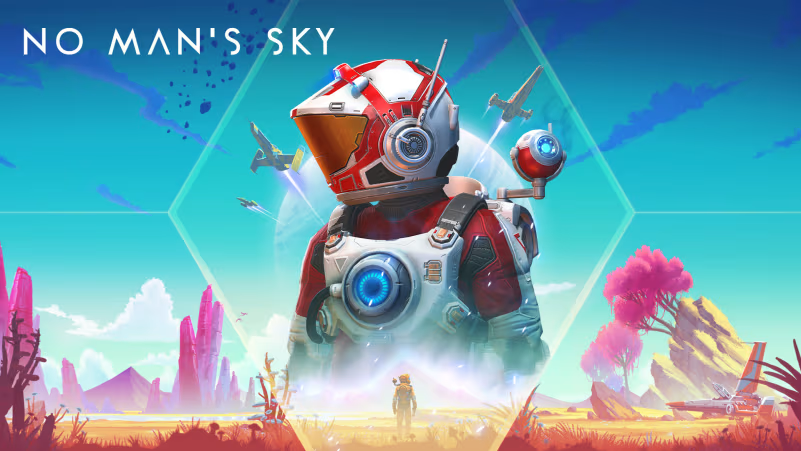If you are in the gaming market trying to develop commercially successful gaming projects, apart from finding professional developers or artists, creating unique characters and outstanding environments, intricate levels, testers, etc., you should face one more challenge. Choosing the right hosting solution has become more essential. Game developers must consider many factors when choosing a hosting provider to ensure their game runs smoothly.
Let’s examine how hosting solutions help your game product succeed. We will also examine the top 5 tips game devs should consider when choosing a hosting option for their games.
What is an Effective Game Server?
The right game server host choice guarantees gamers an enjoyable gaming experience without annoying lag or bugs. Setting up your backend technology to enhance and support your game may sound simple, but it’s vital. The bottom line is that you need to provide gamers with a smooth, engaging experience if you want them to invest time in your game and return.
An effective game server is essential if you want your game to encourage gamers to connect, communicate, and play multiplayer games easily and not annoy them, getting bad reviews on Discord or Twitter afterward.
Types of Game Hosting Services
Let’s outline standard game-hosting solutions any video game development company may consider. This will help you decide which type of hosting is best for your project so that you can introduce it to the market bug-free.
Dedicated Server Hosting
Dedicated game server hosting remains one of the most popular choices among game developers as it’s reliable and efficient. With dedicated server hosting, a physical server is exclusively leased to the game developer, providing complete control over resources and configurations and allowing maximum customization and flexibility. This type of hosting is ideal for large-scale multiplayer games with high player counts.
Advantages: Dedicated servers ensure smooth streaming, allowing your team to control configurations and provide robust security measures.
Drawbacks: Dedicated server hosting is usually quite costly, especially for small indie developers or startups with limited budgets. It requires extended technical expertise and ongoing maintenance efforts. Otherwise, dedicated servers become a resource waste, leading to inefficiencies and increased costs.
Virtual Private Server (VPS) Hosting
This type is between shared hosting and dedicated servers, providing a virtualized environment within a server. VPS hosting, with multiple virtual instances on a single physical server with allocated resources and an operating system.
Advantages: It allows control over server configurations but is more affordable than dedicated servers, making it an excellent choice for game development teams with limited budgets. It also provides a higher level of security compared to shared hosting.
Drawbacks: While VPS instances are isolated, they still share physical server resources, which can lead to performance issues during peak usage periods. VPS instances also have finite resources, which may become a limitation as the game grows in popularity.
Cloud Hosting
Game developers prefer cloud hosting thanks to its scalability, security, and adjustable pricing model. With cloud hosting, you can provision resources on-demand from a vast network of virtual servers without needing physical hardware.
Advantages: Cloud hosting allows game developers to scale resources up or down based on demand. It’s an excellent choice for those who prefer pay-as-you-go pricing models, meaning you pay for what you consume. Cloud hosting providers also have data centers worldwide, enabling developers to deploy game servers closer to their niche audience to reduce latency.
Drawbacks: Without proper monitoring and cost management, cloud hosting expenses can escalate rapidly, especially during periods of high usage.
Hybrid Solutions
Some game developers’ teams opt for hybrid hosting solutions that combine dedicated game servers, VPS hosting, and cloud hosting elements. The choice usually depends on the needs of the gaming project. The main idea of choosing the right server type is to offer a seamless experience for your gamers, balancing expenses, performance, and scalability while offering customization options.
Advantages: They allow for optimizing resource allocation across different hosting environments, providing cost-effective solutions and optimal performance. They also minimize the risk of downtime or service disruptions.
Drawbacks: Managing a hybrid hosting environment takes time, resources, and expertise in multiple hosting technologies.
Checklist For Game Developers Teams to Choose the Server
When you choose the best streaming hosting provider, you should be aware of the options your game project requires to be successful on the market.
- 24/7H No Disruption. A dependable game server allows players to enjoy smooth gaming without interruptions or server breakdowns.
- Fluid Gaming: When streaming, an effective server ensures fluid gaming and lessens the possibility of lags, allowing an enjoyable experience. It simply cuts down on the time between player actions and server responses.
- Multiplayer Option: The server can scale accordingly for a small group of players or a massive online community, ensuring consistent performance under varying loads for everything from indie projects to popular Minecraft servers.
- Secure Your Data: You may rest assured that your data or other players’ data are protected, preventing fraud and ensuring a safe gaming environment. The server covers security protocols, including encryption, firewalls, and anti-fraud measures to protect player data privacy.
Game Withdrawn From Gaming Platforms Due to Technical Issues
We can all understand the frustration of the publisher or indie developer if they decide to withdraw the game project to which they contributed so much time and money due to technical issues. We offer several game cases with the unfortunate fate of being withdrawn from gaming platforms due to significant bugs and technical issues.
SimCity (2013)
Glitch problems, server problems, and performance issues caused SimCity’s 2013 reboot to launch poorly. Players observed long server wait times, frequent disconnections, and game-breaking bugs. Electronic Arts temporarily withdrew the game from digital marketplaces to resolve server capacity difficulties.

No Man’s Sky (2016)
When No Man’s Sky was first released, the gaming community criticized it for lacking many advertised features, such as multiplayer support and various planetary environments. Numerous bugs and performance problems plagued the game, which led to its removal from certain digital stores.

Final Insights
From the examples, we can see how important it is to choose the right hosting solution for a game development project. In addition to the core elements of game design, such as narrative, characters, environments, and levels, selecting an effective server is crucial for ensuring a smooth gaming experience.
Ready to level up your game hosting experience? Explore our recommended game VPS hosting solution at Ultahost. With high-performance servers tailored for gaming needs, take your gaming projects to the next level.










